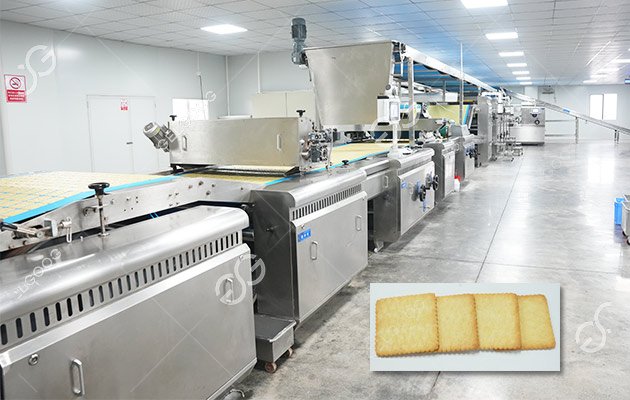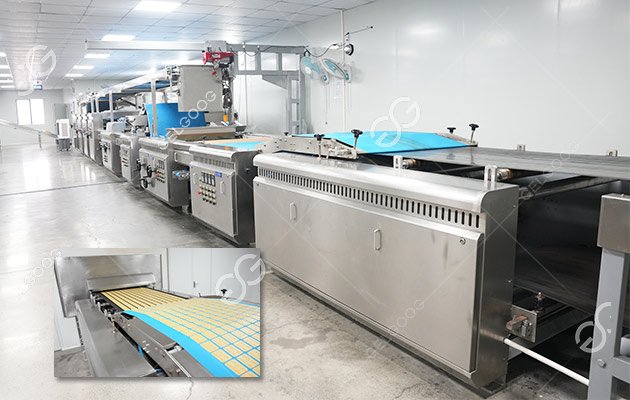Multifunctional Biscuit Making Machine in South Africa
The biscuit making machine in South Africa has changed the way biscuits are produced. Manufacturers can change the way biscuits are produced from manual or semi-automatic production to highly efficient automated equipment production.
In the food industry in South Africa, biscuit making has been a staple for decades. With the increasing demand for quality and efficiency, this production line solves this problem and greatly improves production efficiency.

Traditionally, biscuit making has been a labor-intensive process. From mixing the dough to cutting and baking, each step requires meticulous attention and skilled labor. While this method has its charm and ensures a personal touch, it is not without its drawbacks. The process is time-consuming, and the consistency of the final product can vary.

For South African biscuit manufacturers, the adoption of multifunctional biscuit processing machine is a strategic move. It not only enhances their ability to meet consumer demands but also positions them competitively in the global market. The uniformity and quality of the products produced by these machines are unmatched, setting a new standard in the industry.
The traditional biscuit making process, while steeped in history and skill, is being augmented by the precision and reliability of automated machinery. The introduction of biscuit making machine in South Africa has brought about a significant shift in how these delectable treats are crafted:
- Enhanced Efficiency: The automation of the biscuit making process significantly boosts production rates. Manufacturers can now churn out a larger volume of biscuits in a fraction of the time it would take using manual methods.
- Uniformity in Production: Each biscuit produced by the biscuit processing machine adheres to a standardized recipe, ensuring that the final product is consistent in taste, texture, and appearance. This uniformity is crucial in meeting the high expectations of today's discerning consumers.
- Rigorous Quality Control: The incorporation of advanced sensors and control systems in South Africa biscuit making machine allows for stringent monitoring of the production process. This meticulous oversight minimizes the potential for errors, ensuring that every biscuit meets the highest quality standards.
- Economical Production: By minimizing the reliance on manual labor, these machines contribute to a more cost-effective production process. The reduction in labor costs is a significant advantage for manufacturers looking to maximize their profitability.

For South African biscuit manufacturers, the adoption of multifunctional biscuit processing machine is a strategic move. It not only enhances their ability to meet consumer demands but also positions them competitively in the global market. The uniformity and quality of the products produced by these machines are unmatched, setting a new standard in the industry.
Although the advantages of automated biscuit machine is evident, the path to automation is not entirely smooth. The upfront financial commitment required for such machinery can be significant, and there is an inevitable period of adjustment as staff become proficient with the new technology. Despite these initial challenges, the long-term gains are compelling. The potential for expanded production capabilities and a decrease in labor expenses typically surpass the initial investment costs.
Furthermore, integrating advanced technology into the production process opens up new avenues for South African manufacturers. It enables them to reach out to untapped markets and satisfy a wider spectrum of consumer tastes. The versatility of biscuit making machines allows for the creation of an extensive variety of biscuits with different textures and flavors. This flexibility paves the way for innovation, encouraging manufacturers to test new recipes and concepts, which in turn can lead to a more vibrant and diverse product lineup.
 Email:
lisa@gelgoog.com
Email:
lisa@gelgoog.com Phone:
0086-155-1557-1373
Phone:
0086-155-1557-1373




 Language
Language


